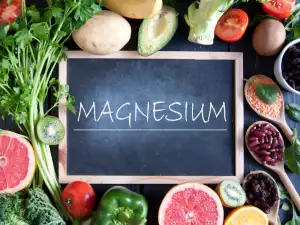Always present in our diet, carrots have surprising properties. Let's find out together in this article why we should eat more carrots!
Carrots are nothing more than the edible root of a perennial herbaceous plant belonging to the extensive Apiales family, of clear Asian origin, but cultivated throughout Europe for several millennia.
Over time, different carrot varieties have spread, different in shape, size, color and obviously also in nutritional characteristics.
Among all of them, the most common is the so-called yellow-orange carrot, whose color is apparently related to the presence of certain pigments belonging to the numerous group carotenoids.
Composition of carrots
In 100 g of raw carrots you can find:
Carbohydrates: about 7.7 grams, of which 7.7 grams are sugars;
Protein: about 1.1 grams;
Fat: about 0.2 grams;
Fiber: 3 g;
Vitamin C: 4 mg;
Vitamin A: 1148 mcg;
Trace minerals.
The nutritional characteristics already highlight the presence of carotenoids such as vitamin A, but also beta-carotene, zeaxanthin and lutein, which inevitably affect its nutritional properties.
Beneficial properties of carrots

Not everyone knows that carrots are a real panacea for gut health. The presence of soluble fiber, as well as a good amount of insoluble fiber, allows carrots to:
- increase in fecal mass, favoring intestinal activity;
- increasing the state of hydration of feces, which improves their consistency;
- exert prebiotic action, facilitating the growth of beneficial bacteria in the intestine;
- protecting the mucous membranes, both gastric and intestinal, from harmful and irritating substances present in food.
These activities are enhanced by cooking carrots and in particular by making carrot soups. However, it should be remembered that cooking increases the glycemic load of the carrots themselves, which makes the dish more sugary (so be careful if you have diabetes).
Carrots are also very beneficial for hypercholesterolemia and hypertriglyceridemia.
So if you have high cholesterol and triglycerides, be sure to consume 2-3 raw carrots before each meal. Soluble fiber present in carrots will create a gelatinous patina on the surface of the intestine, reducing the absorption of cholesterol and fat present in food.
The same trick can be used for carbohydrates, that way making their absorption smoother and avoiding unpleasant glycemic peaks.
The protective property of carrots is definitely more complex, but very interesting. In this sense, the antioxidant, neuroprotective and antiaging action will be carried out by vitamin A, beta-carotene and other carotenoids present in carrots.
According to several studies, 100 g of carrots would provide a sufficient amount of carotenoids to carry out a preventive activity against various cardiovascular and neurological diseases.

However, it would be good to remember that the integrity of these active ingredients is seriously impaired by prolonged cooking over time, which can significantly reduce the useful amount of these heat-labile vitamins. On the contrary, slight and quick boiling could partially improve its availability.
The protective actions of these nutrients against dreaded diseases like cancer should not be underestimated.
And for those more attentive to the aesthetic side, adequate use of carrots will allow you to keep your skin young and healthy, especially in summer, protecting you from ultraviolet radiation.
In these periods, an extract of carrots, lemon and oranges will be a real protective shield.
Harms of eating carrots
Adequate carrot consumption, of course, can only bring important benefits.
However, pay special attention if:
You suffer from diverticula, colitis and inflammatory bowel diseases: sometimes, especially in the acute phases, carrots can increase the symptoms.
You suffer from diabetes: eating boiled carrots, carrot cakes or carrot salads can cause your blood sugar to rise.



















Comments